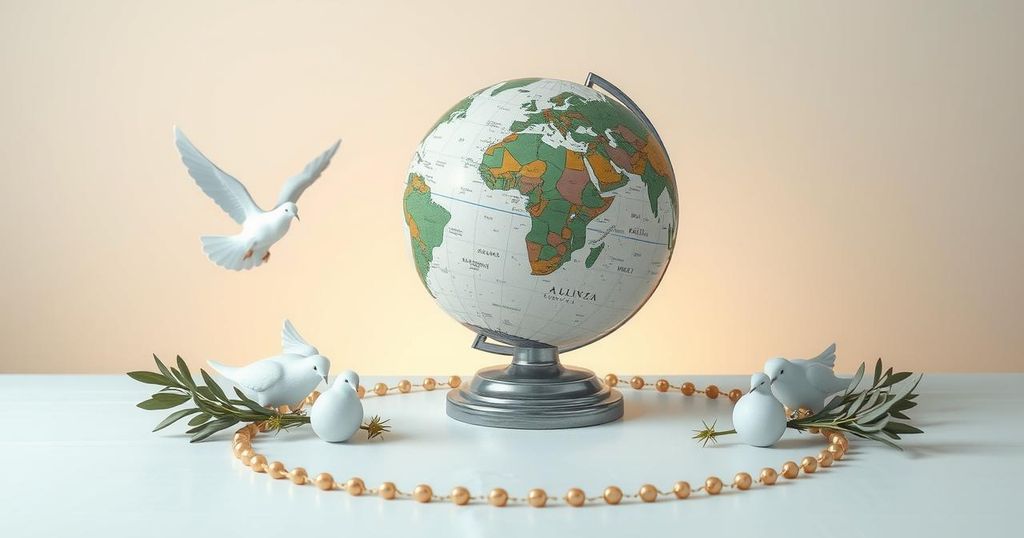Saudi Arabia and the UAE are viewed as potential venues for a Trump-Putin summit according to Russian sources. Both leaders aim to resolve issues surrounding the Ukraine conflict and maintain amicable relations with the Gulf rulers. Despite some opposition within Russia regarding these venues due to the close U.S. ties of these nations, the discussions remain plausible, emphasizing their neutral stance in the ongoing geopolitical landscape.
Saudi Arabia and the United Arab Emirates are being considered as potential meeting locations for a summit between U.S. President Donald Trump and Russian President Vladimir Putin, sources in Russia informed Reuters. Trump has expressed intentions to resolve the war in Ukraine and to engage with Putin directly. Additionally, Putin has indicated his willingness to meet to discuss matters related to Ukraine and energy.
Despite Russian officials denying any ongoing direct talks regarding arrangements for a Trump-Putin phone call, senior Russian officials have recently made visits to both Saudi Arabia and the UAE. Some resistance exists within Russian diplomatic circles, as they cite the close military and security ties that these nations maintain with the United States, which may complicate potential discussions.
Both Saudi Arabia and the UAE have refrained from providing comments on these developments, and the Kremlin has likewise declined to elaborate. However, both leaders, Trump and Putin, have cultivated amicable relationships with the rulers of these nations, with Trump referring to Saudi Crown Prince Mohammed bin Salman as a “fantastic guy”.
Kremlin spokesman Dmitry Peskov acknowledged that talks are “apparently planned” following Trump’s recent remarks about meetings with various parties, including Ukraine and Russia. Since 2015, Putin and MbS have developed a close partnership that contributed to the stability of the OPEC+ energy arrangement.
Importantly, both Saudi Arabia and the UAE have maintained neutrality during the ongoing conflict in Ukraine, opting not to join Western criticisms or sanctions against Russia. They have also engaged with Ukrainian President Volodymyr Zelenskiy and expressed intentions to support peace efforts, reinforcing their active role in mediating negotiations during the conflict.
Turkish venues have been dismissed by Russian sources as suitable options for talks, following previous unsuccessful negotiations. Russian analyst Fyodor Lukyanov emphasized that established locations like Geneva and Helsinki are now inappropriate due to the current geopolitical dynamics. He indicated that while the Gulf States are close U.S. allies, their involvement as potential negotiation venues remains plausible.
The prospect of a Trump-Putin summit, particularly considering the backdrop of the ongoing conflict in Ukraine, highlights intricate international relations involving major players like Saudi Arabia and the UAE. These nations, while traditional allies of the U.S., have taken a neutral stance in the Ukraine crisis, facilitating communication between conflicting parties and potentially enabling discussions essential for peace. The dynamics of their relationships with both U.S. and Russian leadership illustrate the delicate balance of diplomacy in complex geopolitical landscapes. Saudi Arabia and the UAE’s positioning, characterized by strategic partnerships with both global superpowers, offers a unique opportunity for hosting high-stakes dialogues, given recent cooling of relations between Russia and the West over the Ukraine war. Moreover, the historical context of previous interactions and the established relations between Putin and MbS may create a conducive environment for negotiations aimed at addressing significant geopolitical issues, including energy supply and security.
In summary, the consideration of Saudi Arabia and the UAE for a potential Trump-Putin summit underscores the complexities of contemporary international diplomacy amidst the Ukraine conflict. Both leaders’ established relationships with these Gulf nations contribute to a unique venue possibility for discussions that may facilitate conflict resolution. The receptivity of both countries in maintaining neutrality highlights their vital roles in geopolitical dialogues, potentially shaping future interactions between the U.S. and Russia.
Original Source: www.usnews.com






